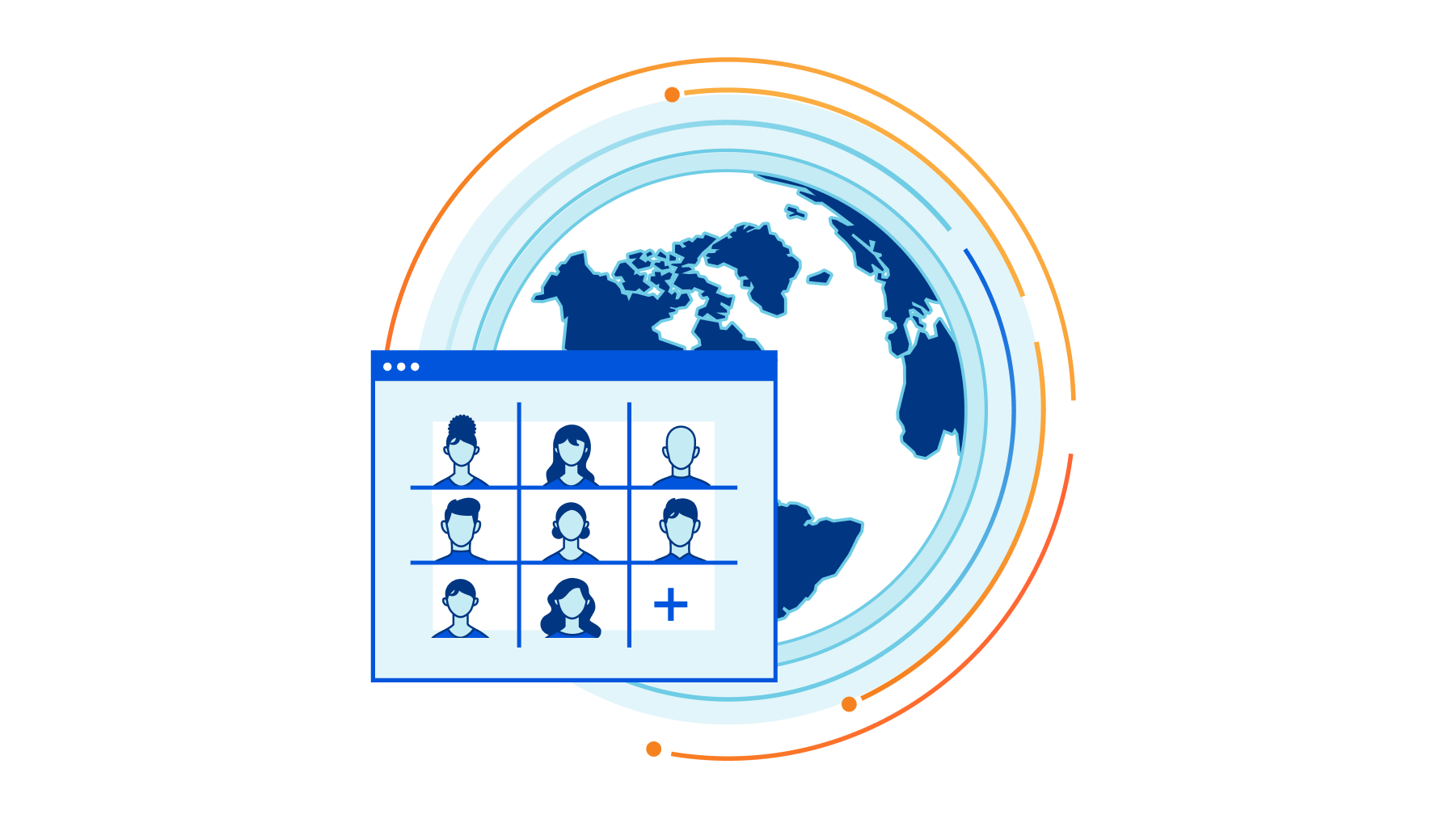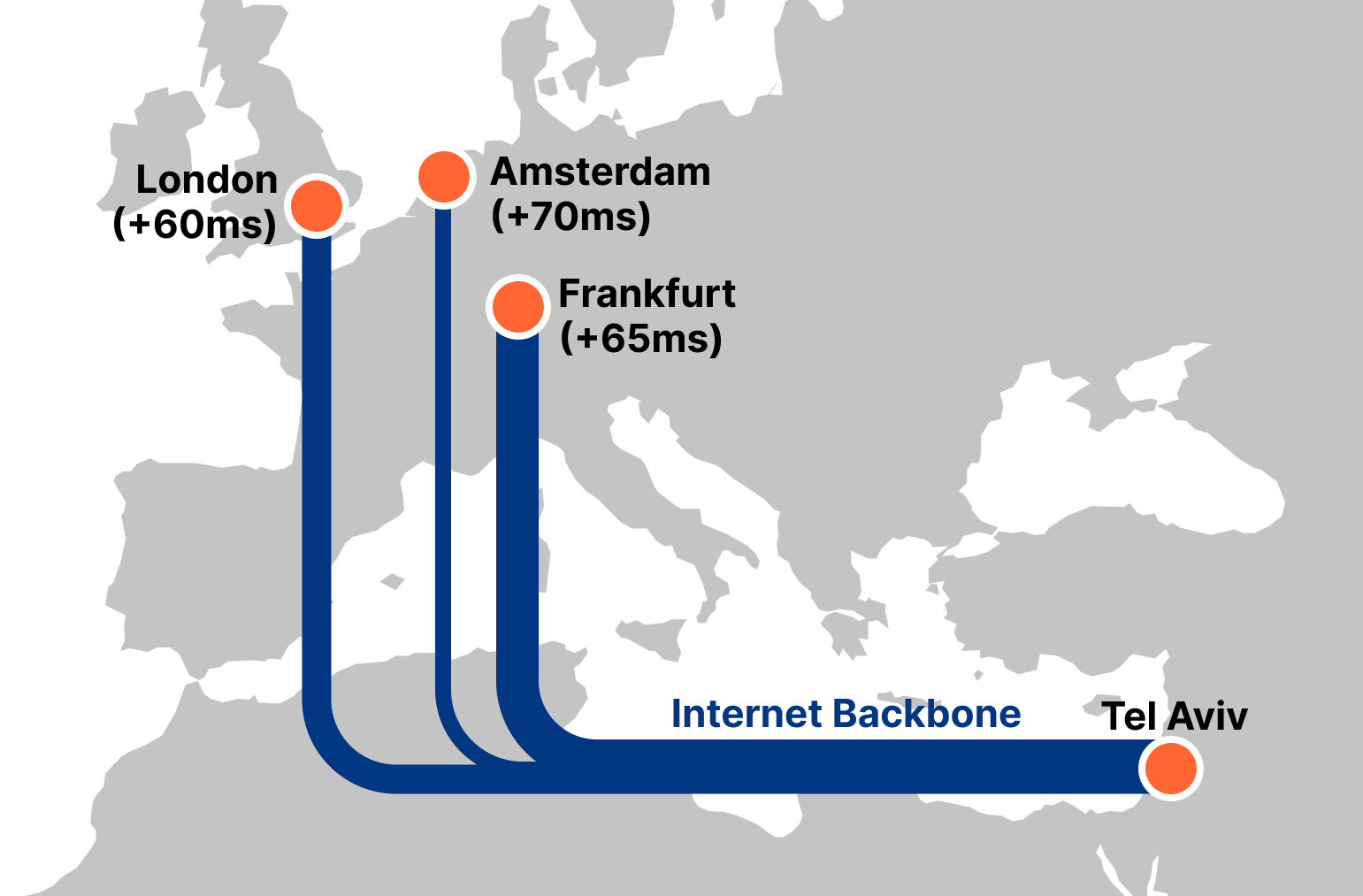Author Archives: Mike Conlow
Author Archives: Mike Conlow
The Internet can feel like magic. When you load a webpage in your browser, many simultaneous requests for data fly back and forth to remote servers. Then, often in less than one second, a website appears. Many people know that DNS is used to look up a hostname, and resolve it to an IP address, but fewer understand how data flows from your home network to the network that controls the IP address of the web server.
The Internet is an interconnected network of networks, operated by thousands of independent entities. To allow these networks to communicate with each other, in 1989, on the back of two napkins, three network engineers devised the Border Gateway Protocol (BGP). It allows these independent networks to signal directions for IP prefixes they own, or that are reachable through their network. At that time, Internet security wasn’t a big deal — SSL, initially developed to secure websites, wasn’t developed until 1995, six years later. So BGP wasn’t originally built with security in mind, but over time, security and availability concerns have emerged.
Today, the White House Office of the National Cyber Director issued the Roadmap to Enhancing Internet Routing Security, and Continue reading


More than ten years ago, researchers at Google published a paper with the seemingly heretical title “More Bandwidth Doesn’t Matter (much)”. We published our own blog showing it is faster to fly 1TB of data from San Francisco to London than it is to upload it on a 100 Mbps connection. Unfortunately, things haven’t changed much. When you make purchasing decisions about home Internet plans, you probably consider the bandwidth of the connection when evaluating Internet performance. More bandwidth is faster speed, or so the marketing goes. In this post, we’ll use real-world data to show both bandwidth and – spoiler alert! – latency impact the speed of an Internet connection. By the end, we think you’ll understand why Cloudflare is so laser focused on reducing latency everywhere we can find it.
First, we should quickly define bandwidth and latency. Bandwidth is the amount of data that can be transmitted at any single time. It’s the maximum throughput, or capacity, of the communications link between two servers that want to exchange data. Usually, the bottleneck – the place in the network where the connection is constrained by the amount of bandwidth available – is in the “last mile”, either the Continue reading


Part of the magic of the Internet is in tens of thousands of networks connecting to each other all across the world in an effort to share information more efficiently. Cloudflare is a member of 279 Internet Exchanges (IX for short), but today we want to highlight one such dot on the global Internet map: the Montgomery, Alabama Internet Exchange, called MGMix. Thanks to the hard work of local leaders and the participation of dozens of networks (including Cloudflare), the Internet in Alabama works better today than it did before the IX launched.
Before we talk more about Alabama in particular, let's take a step back to understand the critical role that Internet Exchanges play in our global Internet. In a simple model of exchanging Internet traffic, one person is on their laptop and requests content on a website, uses a video conferencing application, or wants to securely connect to their workplace from home. The person, or “client” in technical terms, is generally using a traditional Internet Service Provider, who they pay to access everything on the Internet. On the other hand, whatever the user is trying to reach – the website, API endpoint, or security service – Continue reading


Recently, the United States Department of Commerce announced that all 50 states and every eligible territory had signed on to the “Internet for All'' initiative. Internet for All is the US government’s $65 billion initiative to close the Digital Divide once and for all through new broadband deployment and digital equity programs. Cloudflare is on a mission to help build a better Internet, and we support initiatives like this because we want more people using the Internet on high-throughput, low-latency, resilient and affordable Internet connections. It’s been written often since the start of the pandemic because it’s true: it isn’t acceptable that students need to go to a Taco Bell parking lot to do their homework, and a good Internet connection is increasingly important for doing adult jobs as well.
The Internet for All initiative is the result of $65 billion in broadband-related funding appropriated by the US Congress as part of the Infrastructure Investment and Jobs Act (IIJA). It’s been called a “once in a generation” funding opportunity, and compared with the Rural Electrification Act which brought power lines to rural America in the 1930s. The components of the broadband portion of the Infrastructure bill are:


At Cloudflare, we’re excited about the quickly-approaching 5G future. Increasingly, we’ll have access to high throughput and low-latency wireless networks wherever we are. It will make the Internet feel instantaneous, and we’ll find new uses for this connectivity such as sensors that will help us be more productive and energy-efficient. However, this type of connectivity doesn’t have to come at the expense of security, a concern raised in this recent Wired article. Today we’re announcing the creation of a new partnership program for mobile networks—Zero Trust for Mobile Operators—to jointly solve the biggest security and performance challenges.
Every network is different, and the key to managing the complicated security environment of an enterprise network is having lots of tools in the toolbox. Most of these functions fall under the industry buzzword SASE, which stands for Secure Access Service Edge. Cloudflare’s SASE product is Cloudflare One, and it’s a comprehensive platform for network operators. It includes:

If you follow the Cloudflare blog, you know that we love to add cities to our global map. With each new city we add, we help make the Internet faster, more reliable, and more secure. Today, we are announcing the addition of 18 new cities in Africa, South America, Asia, and the Middle East, bringing our network to over 270 cities globally. We’ll also look closely at how adding new cities improves Internet performance, such as our new locations in Israel, which reduced median response time (latency) from 86ms to 29ms (a 66% improvement) in a matter of weeks for subscribers of one Israeli Internet service provider (ISP).
Without further ado, here are the 18 new cities in 10 countries we welcomed to our global network: Accra, Ghana; Almaty, Kazakhstan; Bhubaneshwar, India; Chiang Mai, Thailand; Joinville, Brazil; Erbil, Iraq; Fukuoka, Japan; Goiânia, Brazil; Haifa, Israel; Harare, Zimbabwe; Juazeiro do Norte, Brazil; Kanpur, India; Manaus, Brazil; Naha, Japan; Patna, India; São José do Rio Preto, Brazil; Tashkent, Uzbekistan; Uberlândia, Brazil.
But let’s take a step back Continue reading